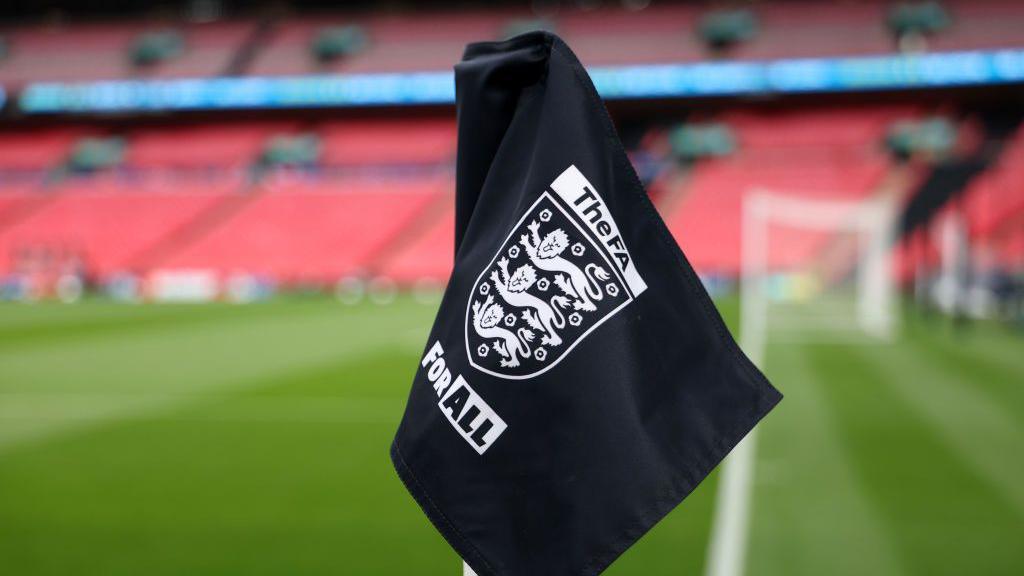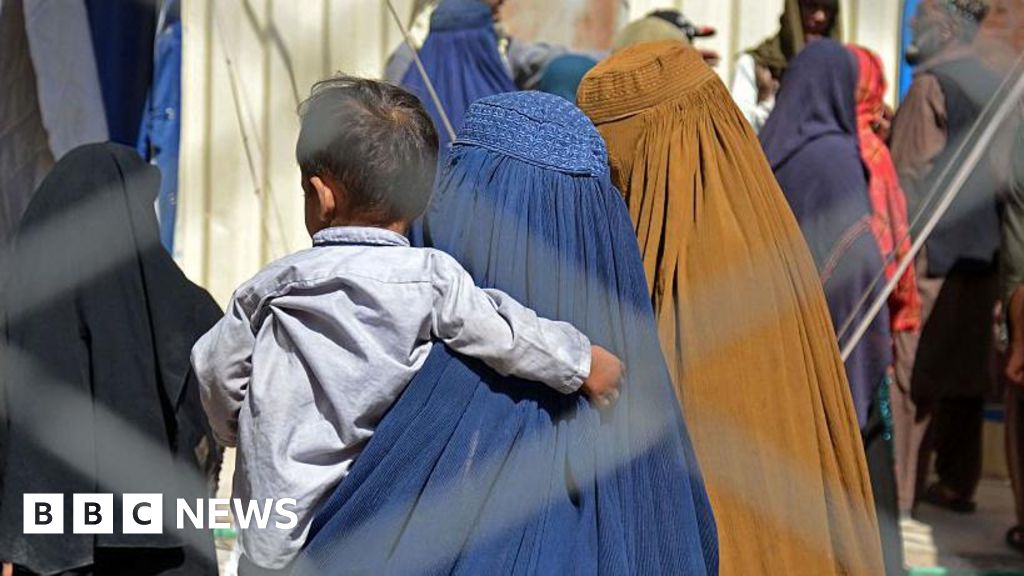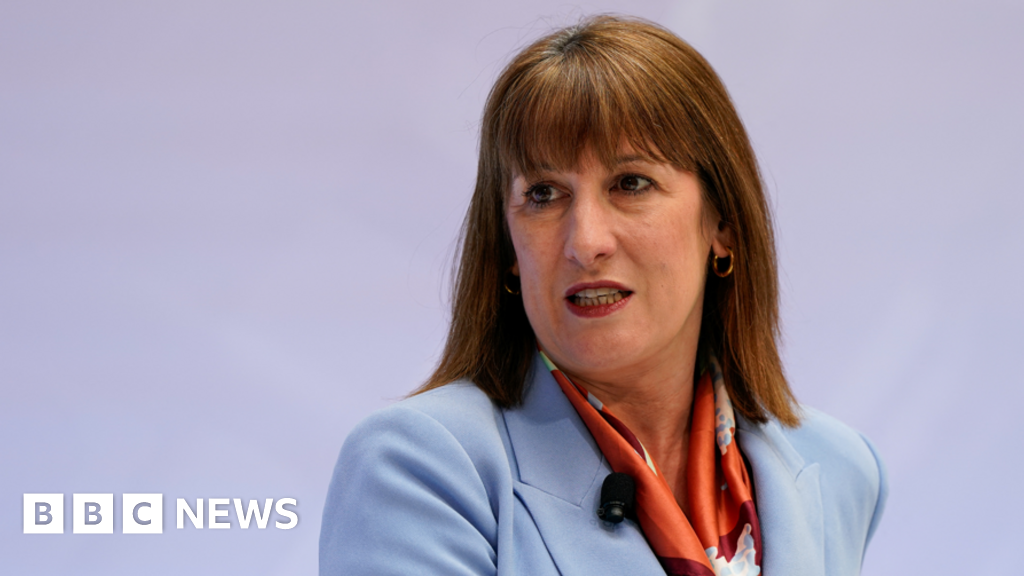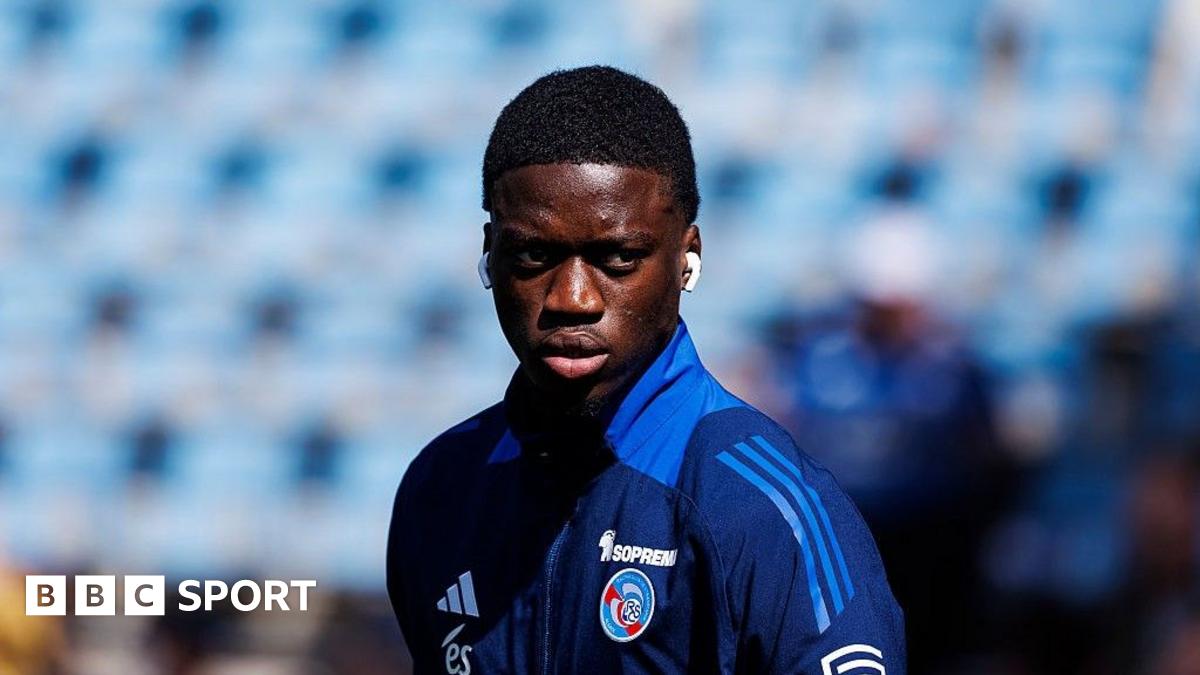 Image source, Getty Images
Image source, Getty Images
The Football Association is English football's governing body
Transgender women will no longer be able to play in women's football in England from 1 June, the Football Association has announced.
It amended its rules on 11 April, applying stricter eligibility criteria for transgender women to continue playing in women's football at all levels.
However, following the UK Supreme Court's ruling on 15 April that the legal definition of a woman is based on biological sex, the FA has scrapped that policy and says only those born biologically female will be permitted to play.
"This is a complex subject, and our position has always been that if there was a material change in law, science, or the operation of the policy in grassroots football then we would review it and change it if necessary," the FA said.
"We understand that this will be difficult for people who simply want to play the game they love in the gender by which they identify, and we are contacting the registered transgender women currently playing to explain the changes and how they can continue to stay involved in the game."
The Scottish FA is set to follow the English FA's ruling by banning transgender women from women's football in Scotland.
Sources have told BBC Sport that the England and Wales Cricket Board (ECB) is also expected to ban transgender women from the women's game.
The ECB has been taking legal advice on its transgender policy following the Supreme Court ruling and is expected to sanction changes to its transgender policy at a board meeting on Friday.
On Thursday England Netball also changed its guidelines by banning transgender women from its female category.
What was the FA's previous policy?
Under amended rules announced on 11 April, the FA said transgender women could continue to participate in women's football provided they met certain criteria.
They would have to prove via medical records that their testosterone levels had been below prescribed levels for at least the past 12 months, and provide a record of hormone therapy and an annual review of treatment.
A new formal process, which would involve a "match observation" by an FA official, would give the FA "ultimate discretion" on a case-by-case basis.
What has the reaction been?
Fiona McAnena, director of campaigns for human rights charity Sex Matters, said the ruling was "overdue" and that the previous policy was "nonsensical".
Following the Supreme Court ruling, Natalie Washington, the campaign lead for Football vs Transphobia, told BBC Sport: "What I'm sure we'll see is greater reticence from transgender people to engage with sport and physical activity.
"Whenever there is a legal or governmental ruling on this, or an organisation takes a position, there is an uptick in abuse."
How many players will be barred?
Last month the FA said 20 transgender women were registered among millions of amateur players.
There are no registered transgender women in the professional game across the Home Nations.
Last week anti-discrimination group Kick it Out said the Supreme Court ruling would have "far-reaching consequences" and called for "everyone in football community to treat one another with respect and compassion".
What about other sports?
The FA is the first major governing sporting body to amend its transgender eligibility criteria following the Supreme Court ruling.
The Ultimate Pool Group (UPG) - the professional body for eight-ball pool - banned transgender women from its female category last month.
Other governing bodies, including the World Professional Billiards and Snooker Association (WPBSA), are reassessing their transgender eligibility criteria.
Athletics, cycling and aquatics have implemented outright bans on transgender women taking part in women's events.
In 2022 British Triathlon became the first British sporting body to establish an open category in which transgender athletes can compete.
This year the ECB banned transgender women from elite domestic cricket.
The ruling meant any player that had gone through male puberty would not be able to feature in the top two tiers of the women's game, but that transgender women were still eligible for the third tier and below.
However, the ECB is expected to follow the FA ruling by banning transgender women from all levels of the women's game.
England Netball's new guidelines, which will apply from 1 September, recognise three distinct gender participation categories: female, male and mixed.
The female category would be "exclusively for players born female, irrespective of their gender identity", while mixed netball will "serve as the sport's inclusive category, allowing players to complete under the gender with which they identify".

 1 month ago
75
1 month ago
75

















































